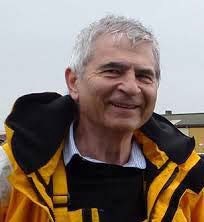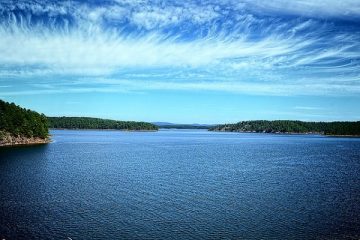REAL-TIME, ADAPTIVE, SELF-LEARNING MANAGEMENT OF LAKES IN A CHANGING CLIMATE
Abstract
Lakes and reservoirs are increasingly threatened by anthropogenic activities, with serious environmental and financial consequences. Of particular concern are increases in thermal stratification due to global warming, and increases in nutrient loading due to increased waste disposal. In deep lakes increasing seasonal water column stability can suppress periodic overturns, fostering the deoxygenation of hypolimnetic waters. When overturn does occur, the large volume of deoxygenated hypolimnetic water threatens fauna and flora. Reservoirs and shallow lakes are increasingly experiencing toxic algal blooms in response to diurnal stratification patterns changing in combination with increasing nutrient loadings.
Two prominent examples are used to illustrate problems presently encountered, and the range of control strategies available to manage the consequences. It will then be shown how adaptive, real-time, self learning technologies may be used to dynamically optimize ecosystem health, as both the impacts and the system change with time.
- Lake Iseo, Italy: The period between overturns, in Lake Iseo, has increased from around every ten years to twenty years over the last 50 years, We show that the water column stratification maybe controlled with solar powered impellers allowing the frequency of overturning to be regulated so as to prevent the build up of large volumes of hypolimnetic low oxygen
- Lake Ypacarai, Paraguay is a shallow lake that is experiencing severe eutrophication resulting in severe toxic algal blooms that are having a devastating impact on the economy of Using numerical simulations of the lake ecosystem, we carried out a sensitivity analysis of the available controls for the mitigation of the algal blooms: decrease nutrient loadings, decreasing water levels, flushing the lake with bore water, and increasing the water opacity.
The results for both lakes facilitate the installation of a real-time adaptive management system that uses model forecasts of the lake ecosystem to optimize the controls.
Jörg Imberger:

Professor Imberger is an Adjunct Professor at the Rosenstiel School of Marine and Atmospheric Science, University of Miami, Florida and visiting Professor at the Venice University, Italy. His research foci are the motion and mixing in lakes, estuaries and coastal seas in response to both natural and anthropogenic forcing and understanding the consequences when human tribal behavior is connected to the internet.
For several decades Professor Imberger has been a world-leader in Environmental Fluid Mechanics. He has received many
awards including Onassis International Prize (1995), the The Stockholm Water Prize (1996) and the Redfield Life Time Achievement Award
(2007). In 1992 he was made a Member of the Order of Australia and in 2008 he was named Scientist of the Year of Western Australia.
Professor Imberger has directed and participated in field research projects in Australia, Malaysia, Singapore, Laos, Korea, Japan, China, Israel, Jordan, Italy, Germany, Netherlands, Greece, Macedonia, Canada, US, Mexico, Columbia, Brazil, Argentina, Chile, Kenya and South Africa.
Professor Imberger has published 5 books, with two in preparation, contributed to 19 books and has published 261 Journals papers and numerous reports. Google Scholar credits him with 17,653 citations and an h-Index of 61.

Photo credit: Armyman from flickr/Creative Commons